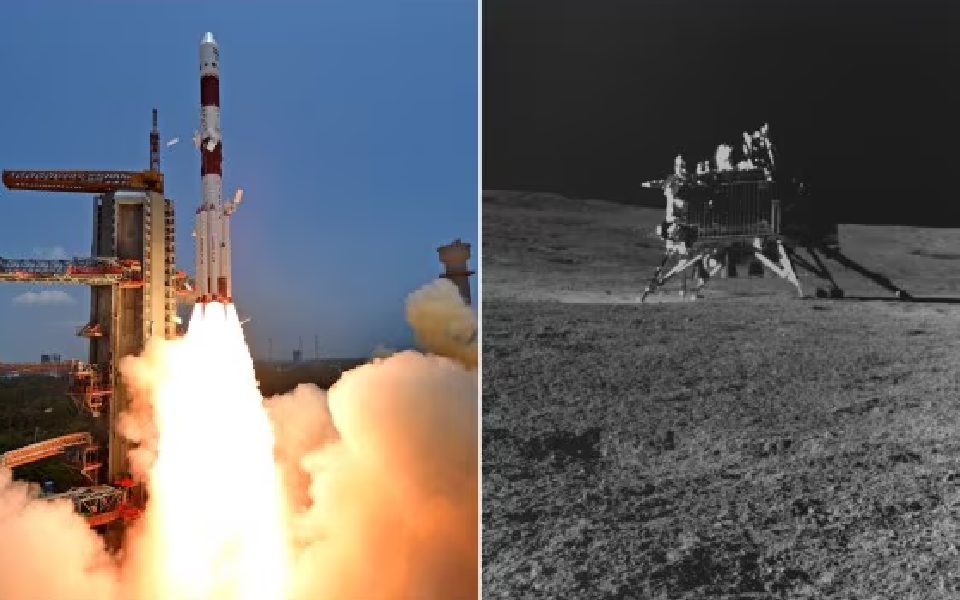Based on data from the ChaSTE payload on the Chandrayaan-3 lander, an yet-to-published research found an enormous temperature difference of approximately 60 degrees Celsius between the lunar surface and barely 10 centimeters within it. According to a senior scientist of the Indian Space and Research Organization (Isro), the extreme heat non-conductivity of the lunar surface may make it possible to build temperature-controlled dwellings beneath it.
Researchers are examining whether long-term habitation on Earth's satellite is feasible as well as whether the moon can function as a base for deep space travel.
The lander of the Chandra's Surface Thermophysical Experiment (ChaSTE) was equipped with a thermometer that was inserted 10 cm into the lunar regolith, which is composed of mineral pieces, rock chips, and lunar soil. Ten sensors, spaced one centimeter apart, were used by the device to measure the temperature in this layer at various points.
Ten sensors are mounted on it to record the temperature over a ten-day period at various depths. As the sun moved across the area, we could see how the temperature varied at different depths, the Isro scientist stated.
The Chandrayaan-3 mission was designed to allow all of the experiments to run for almost the whole time; one lunar day is equal to fourteen Earth days.
A live thermal conductivity test was conducted ten days later. "A heater was positioned at a depth of roughly 8 cm on the eighth sensor. After 10 days, we switched on the heater to observe how the regolith absorbed the heat. The sensors recorded the drop in temperature after the heater was turned on for four hours and then turned off. The scientist stated, "That gave us the first information about the actual thermal conductivity of the moon," and that the report would be published shortly.
The experiment demonstrated that the moon's surface was entirely non-conductive, according to the experts. "I can utilize it as a heat blanket for a human habitat if it is non-conducting. The scientist compared it to using a blanket on cold winter evenings. "Any heat generated inside will remain trapped, even though the outside temperature may be low," the scientist added. The stark temperature difference, which can range from 121 degrees Celsius during the day to -133 degrees Celsius at night, is one of the difficulties faced by lunar missions. Temperatures as low as -246 degrees Celsius have also been recorded in deep craters.
Let the Truth be known. If you read VB and like VB, please be a VB Supporter and Help us deliver the Truth to one and all.
Kalaburagi: Four men have been arrested in Kalaburagi on charge of hacking a man with lethal weapons and pelting stones at him under the limits of Station Bazaar Police Station recently.
According to police sources, Anand Jalak Shinde (34), Ashitosh Jalak Shinde (30), Imran Mehboob Sheikh (28) and Sohaib Anwar Qureshi have been arrested. The men are accused of the brutal murder of Syed Mehboob, a resident of Station Bazaar Upper Line Hamalawadi in the city.
An FIR was filed by the Station Bazaar Police Station based on a complaint given by Syed Ismail, father of the deceased Syed Mehboob.
Following quick probe, the police team successfully arrested the suspects within 24 hours. The arrested men were produced in court and have been sent to judicial custody.
The City Police Commissionerate has appreciated in an official release the police team’s quick solving of the murder case and arrest of the four men accused of murdering Syed Mehboob.





